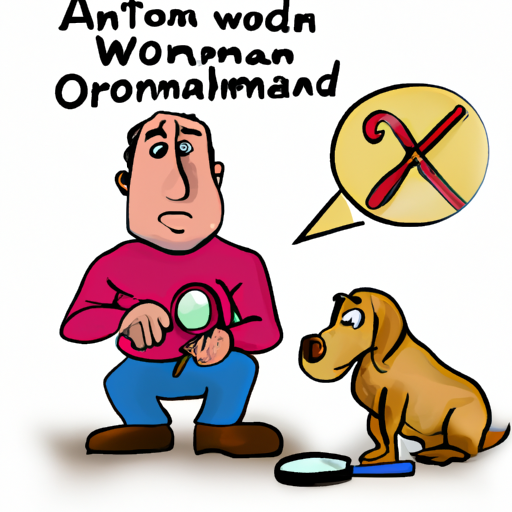1. Understanding Roundworms
Roundworms, often known as ascarids, are one of the most common parasites that can afflict our four-legged friends. As a caregiver, your duty is to ensure the health and happiness of your canine companion. Understanding the enemy is the first line of defense.
The life cycle of roundworms begins when a dog ingests infected eggs from the environment. The larvae then hatch in the dog’s intestines and mature into adults. As adults, they lay eggs which are passed out in the dog’s feces, infecting the environment and potentially other dogs.
These worms can cause a variety of problems, including:
- Weight loss
- Dull coat
- Coughing
- Vomiting
- Diarrhea
- Pot-bellied appearance
2. Diagnosis of Roundworms in Dogs
Before you can treat roundworms, you must first confirm their presence. The best way to do this is through a fecal examination by your vet. The vet will take a sample of your dog’s feces and examine it under a microscope, looking for the presence of roundworm eggs.
3. Treatment Options for Roundworms
Once you’ve confirmed a roundworm infection, there are several treatment options available:
-
Deworming Medication: The most common method of treating roundworms is with deworming medication. These drugs are designed to kill the worms, allowing them to be passed out of the body in the feces. It’s important to note that these drugs only kill the adult worms, not the eggs or larvae.
-
Prevention: Preventing roundworms is often easier than treating them. Many heartworm prevention medications also protect against roundworms. Regular vet check-ups and fecal examinations can also help catch an infection early before it becomes a serious problem.
| Treatment | Pros | Cons |
|---|---|---|
| Deworming | Quick, often effective | Doesn’t kill eggs or larvae |
| Prevention | Prevents infection before it starts | Requires regular vet check-ups |
4. Caring for Your Dog Post-Treatment
Once your dog has been treated for roundworms, it’s critical to keep a close eye on their health. This will help ensure the treatment was successful, and prevent a re-infection.
Here are a few steps you can take:
- Monitor their feces: This is the most direct way to confirm the worms have been eliminated.
- Continue preventative treatments: Preventative medications should be given regularly to avoid re-infection.
- Clean your environment: Regularly clean up your dog’s feces from your yard or any area they frequent.
5. Frequently Asked Questions (FAQs)
Q: Can humans get roundworms from dogs?
A: Yes, humans can get roundworms from dogs, especially children who play in areas where dogs have defecated.
Q: How often should I deworm my dog?
A: This largely depends on your dog’s lifestyle and risk factors. Consult your vet for personalized advice.
Q: Can roundworms be fatal to dogs?
A: In severe cases, yes. However, with early detection and treatment, most dogs recover fully.
Your role as a caregiver is pivotal in the overall health of your furry friend. By understanding, diagnosing, treating, and preventing roundworms, you can ensure a happy, healthy life for your beloved pet.



